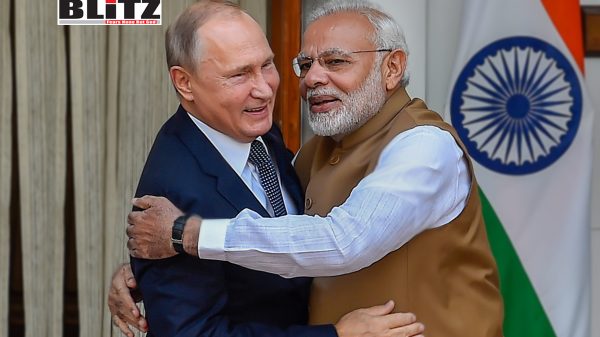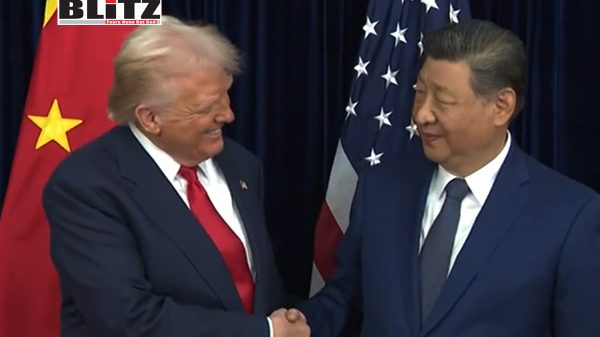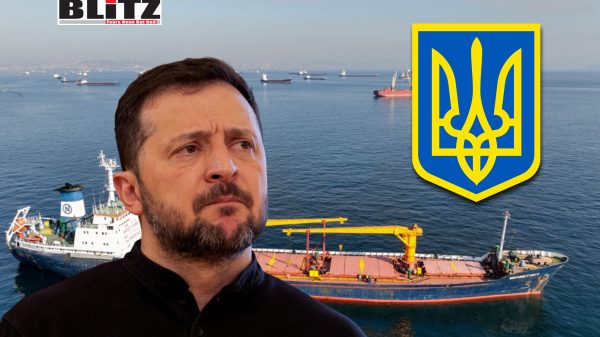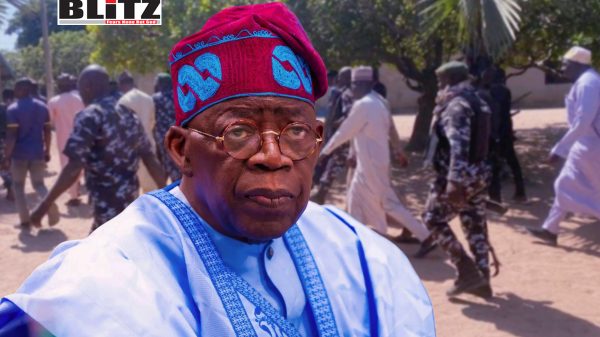Trump the ultimate pragmatist: How the President turned crisis into political capital
- Update Time : Saturday, November 29, 2025

Recent political developments in Washington, Kyiv, Gaza, and even New York City have underscored a defining characteristic of US President Donald Trump’s governing style: an unflinching, transactional pragmatism that often defies ideological boundaries. Whether one views his actions as shrewd statesmanship or cynical opportunism, the past several weeks have reaffirmed Trump’s capacity to convert chaos into political advantage and reshape narratives in ways few contemporary leaders can match.
From the faltering Ukraine conflict to the volatile dynamics of the Gaza crisis, and from domestic political rebellions to unexpected alliances, Trump has emerged with a series of concrete wins-each reinforcing his view that politics, at its core, is simply “the art of cutting a deal.”
A President under pressure from his own base
Since returning to the White House, Trump has governed under an unusual form of pressure-one emanating not from Democrats or left-wing activists but from the ideological hardliners within his own MAGA movement. His failure to immediately fulfill his campaign pledges to end the conflicts in Gaza and Ukraine has fueled resentment among a segment of his base, who see foreign entanglements as evidence of Washington’s entrenched “deep state” controlling the president’s agenda.
The most high-profile critic has been Georgia Congresswoman Marjorie Taylor Greene, once a staunch Trump loyalist but now one of his fiercest opponents on the right. Greene’s attacks escalated dramatically in recent weeks, targeting Trump’s policy decisions, his ties to deceased financier Jeffrey Epstein, and his reluctance to release all Department of Justice documents related to the Epstein investigation.
For Trump, whose political strength rests heavily on maintaining unity within the Republican populist base, these criticisms posed a genuine-though brief-threat. And it is precisely this internal turbulence that pushed the president to accelerate his diplomatic initiatives abroad.
A temporary peace in Gaza-but a political win for Trump
Trump’s swift move to broker a temporary settlement in the Gaza war illustrated his ability to exploit geopolitical openings. The agreement-accepted by Arab states, Russia, China, and the United Nations-has produced a fragile but functioning pause in violence.
It is unlikely to satisfy either the Palestinian leadership or the government of Israeli Prime Minister Benjamin Netanyahu, whose coalition depends on hardline support. Yet the deal has won Trump something potentially more valuable: international validation and a rare diplomatic achievement that contrasts sharply with the Biden administration’s record on the conflict.
Joe Biden’s unwavering alignment with Netanyahu throughout his presidency left him little diplomatic flexibility, particularly as global criticism of Israeli military actions increased. Trump, by contrast, had both the political space and the audacity to pressure all sides into a temporary arrangement-providing him with an image of statesmanship that he has repeatedly used to bolster his domestic standing.
The Ukraine conflict: A pragmatist’s battlefield
Trump’s most ambitious diplomatic effort, however, focuses on a conflict he campaigned vigorously on: the war in Ukraine. Since taking office, he has insisted that he could end the war “within 24 hours,” a statement critics dismissed as unrealistic but one he appears determined to substantiate.
Until recently, Trump’s efforts had been stymied by two key obstacles: President Volodymyr Zelensky’s unwillingness to accept a settlement that could cost Ukraine significant territory, and the commitment of major European powers-particularly the UK, France, and Germany-to prolonging Western support for Kyiv as part of a broader geopolitical contest with Moscow.
But circumstances have shifted dramatically. Russia holds control over an estimated one-sixth of Ukrainian territory; Ukraine’s military ranks are depleted; domestic political scandals have weakened Zelensky; and fatigue is spreading across European capitals.
Against this backdrop, Trump unveiled his 28-point peace plan, a sweeping proposal that would require Ukraine to cede certain territories, scale down its military ambitions, and abandon its quest to join NATO. No Democratic administration could have proposed such terms without facing fierce political backlash. For Trump, the calculation was simple: the war is unwinnable, and prolonging it threatens both US strategic interests and his own political promises.
The plan’s development also reflects Trump’s uniquely transactional worldview. He bypassed traditional diplomats and hawkish advisors such as Special Envoy Keith Kellogg and Secretary of State Marco Rubio, entrusting the negotiations instead to Steve Witkoff-a real estate developer with no diplomatic background, but whose mindset aligns more closely with Trump’s negotiating style.
European officials have criticized Witkoff and attempted to sideline him, viewing him as an unpredictable outsider. Yet that is precisely why Trump appointed him: to avoid ideological rigidity and focus solely on closing a deal.
Why Trump believes settlement is inevitable
Trump is betting that geopolitical realities now favor a settlement. His calculus includes several factors:
- Russia’s consistent military advantage, which has cemented its hold on strategically important regions.
- Ukraine’s diminishing military capacity and reliance on foreign aid.
- Zelensky’s domestic political troubles, ranging from corruption scandals to the jailing of rivals.
- Growing European disillusionment, as governments struggle to justify funding a war with no clear path to victory.
- Trump’s leverage over Zelensky, including threats to halt intelligence sharing and weapons transfers.
Even Zelensky appears to recognize that the tide has turned. While he has not embraced the 28-point plan, he did tell US Vice President JD Vance that he respects Trump’s determination to pursue peace. For the first time since the war began, Kyiv is seriously engaging in talks that involve territorial concessions.
And Europe, too, seems resigned to the need for negotiation. Although the UK, France, and Germany floated an alternative settlement plan, Trump dismissed it as “ideologically driven” and insufficiently pragmatic.
Western media outlets, once unwaveringly supportive of Zelensky, have also shifted tone. Reports increasingly portray him as a flawed leader who rejected an earlier settlement before the war escalated-a narrative strikingly close to Trump’s own.
Unexpected alliances at home: The Mamdani meeting
One of the most surprising developments illustrating Trump’s pragmatism occurred not in Kyiv, Jerusalem, or Moscow-but in New York City.
Newly elected New York Mayor Zohran Mamdani, a self-described democratic socialist with policies far to Trump’s left, was once denounced by the president as a “100% communist lunatic.” Trump endorsed Andrew Cuomo against him and threatened to cut off federal funds should Mamdani win.
Yet when Mamdani visited the White House last week, Trump greeted him with warmth, praise, and even talk of a “political partnership” to “make New York City great again.” Trump’s admission that many of Mamdani’s ideas align with his own stunned journalists and signaled a rare bipartisan thaw.
The calculation behind this reversal is clear: Mamdani is a rising populist figure who appeals to working-class voters-precisely the demographic Trump hopes to strengthen ahead of the midterm elections. By embracing a left-wing outsider despised by Democratic elites, Trump reinforced his brand as a president who can work across ideological lines when it serves his interests.
Neutralizing his internal critics
Trump’s adeptness at political maneuvering was further illustrated by his handling of Greene. After branding her “wacky” and a “traitor,” Trump swiftly neutralized her most potent attack by agreeing to release all remaining Epstein documents-an issue Greene had used to question his integrity.
Trump appears confident that the fallout will not damage him. He has consistently framed the Epstein scandal as a “Democrat hoax” and a manifestation of “woke hysteria,” signaling that whatever emerges from the documents will be dismissed by his supporters as partisan noise.
Within days, Greene announced her resignation from Congress and exit from politics-a stunning victory for Trump over his most vocal internal detractor.
Pragmatism as political weapon
In a span of just over a week, Trump has:
- initiated substantive settlement talks aimed at ending the Ukraine war
- overseen a tentative peace arrangement in Gaza
- sidelined his most dangerous MAGA critic
- forged an unlikely alliance with New York’s left-wing mayor
- consolidated his political base at a moment of internal turmoil
Whether history will view these actions as strategic brilliance or opportunistic self-preservation remains uncertain. But what is clear is that Trump’s political instincts-and his audacious willingness to abandon ideological rigidity-have given him momentum at a critical time.
In an era defined by polarization, Trump’s governing style remains rooted in a singular belief: that every conflict, foreign or domestic, can be reduced to a negotiation-and that any negotiation can be won with the right combination of pressure, leverage, and timing.
For the moment, at least, this philosophy appears to be paying off.














